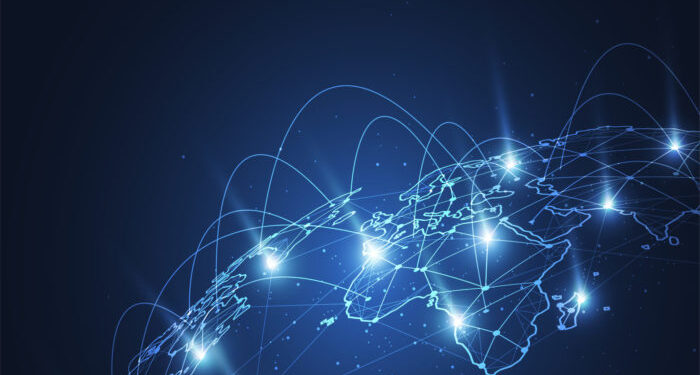During the 2020 SMART4SEA Athens Forum, Andreas Chrysostomou, Chief Strategy Officer, Tototheo, presented the concept of data sharing platform and the importance of collaboration between all the shipping sectors.
Currently, all shipping companies are striving to make their ships more efficient and more streamlined to the realities of today. Although everybody is trying to improve the ship efficiency not too much attention is paid on the efficiency of the port call. Where further efficiencies can be achieved.
Apparently, we do not have everyday all ports operating as much efficient as we want, or they do not share the information we would like to have. On the other hand, the ports don’t have the information required by the ship; when the ship arrives, whether it is delayed or when it will not arrive at the port at all.
We do have the ability to improve that. How can we improve the efficiency during the port call? Now, we are only trying to improve the efficiency during the voyage and during the time we are in the port. But, what about the efficiency which is in collaboration with the port, the ship and the actors within the port and the actors within the ship operator, the ship manager or the ship owner?
- What is known?
- Who has access to this knowledge?
- Is it real time or as close to real time?
- Who has control of the situational awareness?
What I’m trying to say here is do we know what time the ship will arrive? What do we know about the ship that left the upstream port or what time it is arriving to the downstream port? Can we share the information?
What we see in the picture below is something called PCS; That’s a port community system.

The port itself knows exactly what is going on in its port community. Does that information relate to the ship? Not usually.
There are some sectors which have better information about the port situational awareness, such as the cruise industry which I know very well and also the container industry.
When it comes to the rest of shipping, that information becomes cloudy, and not even real-time. It’s very important to see on a web page the time of arrival or the estimated time of arrival of a ship. But, is that real time or is something that has been said a few weeks or months ago?
Who has access to it? Obviously, who ever is at the port, they might have access, if the port authority allows access to the port community system. Only the port has control over the situational awareness.
Is there a better way?
In our opinion, yes there is a better way. There is nothing wrong of sharing timestamps. Data sharing Platforms can provide Shipping companies with the tools and analytics to do just that by allowing:
- Ships or ship operation centers to share timestamp data with ports; they are the property and belong to those who put them in, so privacy is important.
- One interface for everyone to share time stamp data to each other creating situational awareness;
- Port actors to be connected to other port actors;
- For ports and port actors to be connected to outside actors (shipping companies and other ports);
- Ships to share timestamp data with their company; and
- Provide inside knowledge to the company what is consistently observed as an inefficiency by the port/terminal
Let’s look at the airports. They have collaborative data management. How do they do that? Because of the way they work, they have created a closed system that everybody knows what everybody does and where they are. When a pilot initiates landing, everybody is informed, and they lock in that they are ready. A few minutes later they lock in that they are on their way and so on. So, everybody knows where everybody is at every time.
At the end what do you achieve? I achieve just in time. Why should you achieve just in time?
I agree with the Chief Executive of Alibaba saying that the experts are for yesterday and not for tomorrow; We don’t know what the future holds. At least, looking of historical data you can predict up to certain certainty what can be the norm of tomorrow.
Therefore, just in time means ‘no unnecessary movements.’ No unnecessary use of fuel, no unnecessary emissions of carbon dioxide.
How can we achieve that?
Concerning the PCS, we have a platform of sharing information, but it does not extend beyond the boundaries of the port. You need to continue the information to reach the ocean and from there to reach the shore office.
Therefore, we need an optimal data sharing platform, which operates on universal standards or an open platform with no international standards and everybody can come in and translate accordingly, but then you can understand you might have chaotic information coming back to the regulators which at the end of the day will like to evaluate this kind of situation.
You need to have
- Standardized message exchanges
- Safe and secure digital interaction
- Enhanced situational awareness
- Multiple Sources (Data Input)
- Collaborative decision- making based on in real-time data sharing
- Global Implementation. That doesn’t mean a platform should be a monopoly. It could be different platforms connecting between themselves, or a number of port community systems having their own common platform.
- Compliant with the recommendations of International Standard/Rules Organizations
- Adaptable, Scalable; and
- Be able to use AI, Machine Learning & Blockchain
Why a data sharing platform?
- Get access to external data, in a standardized way critical for optimizing operations
- Achieve connectivity compliancy (i.e. the data sharing platform will function as an interface to others that are using different standards)
- Only one connector needs to be built to access time stamps related to port calls that are of concern for the Client
- Create a series of analytics from data relating to the companies ships and frequented ports
- Provides simple discovery and connectivity.
- Enables instant data access from carrier and other external actors
- Allows easy connectivitiy of external actors to the platform
- Changes of data formats and connectivity of external sources will be transparant
Keep in mind that they IMO has already roll the ball that the ports and the ships and the flag states and the ports have to collaborate to bring just in time.
Benefits of data sharing platform
The ultimate goal is to ensure performance comparison to overall shipping.
As a First step Terminal – shipping company integration will happen and then it will become more global.
As time goes by, we’re going to see more situational awareness which will lead to a competitive advantage in relation to operations within a specific port or terminal. Sharable situational awareness providing means leading to competitive advantage.
Then, you have port-to-port communication. Don’t forget that it happens directly, which is expensive and on the other hand it might not be direct for everybody in the web. But, through an exchange like a data sharing platform you can get access to ports that US might not really have a connection before.
Then you have of course the holistic other value to the logistic platforms. You have the data sharing platform, you then have the people that are connected, the people that are not connected to the platform, but they go on and off. Therefore, you create synergies and collaboration, but also you create business intelligence.
Don’t forget that by sharing platform, by sharing information business intelligence can be created. That doesn’t mean it’s to the detriment of someone, but you can use the information to evolve yourself or the company.
Of course at the end of the day you can create analytics and another thing where the IMO is heading now through the Global International Industry Alliance and the port call optimization group, they try to create aggregate statistics to find out analytics and then propose a way forward to optimize the fleet and the port interaction.
I don’t believe that this platform stops only at the cruise and containership industries. The rest of the sectors as we’re approaching 2030 and 2050, we have to do as much as possible on the reduction of CO2 to achieve the 50% reduction in aggregate.
Above text is an edited version of Mr. Chrysostomou’s presentation during the 2020 SMART4SEA Athens Forum.
You may view his video presentation herebelow
The views expressed in this article are solely those of the author and do not necessarily represent those of SAFETY4SEA and are for information sharing and discussion purposes only.
About Andreas Chrysostomou Chief Strategy Officer, Tototheo
 Mr. Chrysostomou is a seasoned professional in the shipping industry. He holds an MBA (Master’s in Business Administration) and he graduated from the University of Newcastle upon Tyne, UK, with a Bachelor of Engineering in Naval Architecture and Shipbuilding.
Mr. Chrysostomou is a seasoned professional in the shipping industry. He holds an MBA (Master’s in Business Administration) and he graduated from the University of Newcastle upon Tyne, UK, with a Bachelor of Engineering in Naval Architecture and Shipbuilding.
Mr. Chrysostomou, in his long-standing career, before joining Tototheo Maritime as CSO, was the Director of the Department of Merchant Shipping, (the Maritime Authority of Cyprus), CEO of Transmed shipping Co. Ltd. And Act. Secretary General of CLIA Europe.
He also held senior management roles in fields such as safety and security, protection of the marine environment and administration. He also served as the elected Chairman of the Design and Equipment Subcommittee of the IMO and of the Marine Environment Protection Committee (MEPC), one of the main Committees at IMO. He was twice elected and re-elected Chairman of the International Mobile Satellite Organization and served as member of the Board of Governors of the World Maritime University (WMU). He also served as President of the Institute of Marine Engineering, Science & Technology (IMAREST).
Mr. Chrysostomou’s skills and integrity have been acknowledged by peers, by awarding him the 2011 Award for Outstanding Contribution to Sustainable Shipping. In November 2011 he has also been presented with the Distinguished Public Service Award by the United States Department of Homeland Security, United States Coast Guard, for his invaluable service to International Shipping and in 2013 the GST Award – Leading Shipping Personality of the Decade 2003 – 2013. Furthermore Mr. Andreas Chrysostomou was awarded The Lloyd’s List Greek Shipping Award – “International Personality of the Year” 2015.






























































